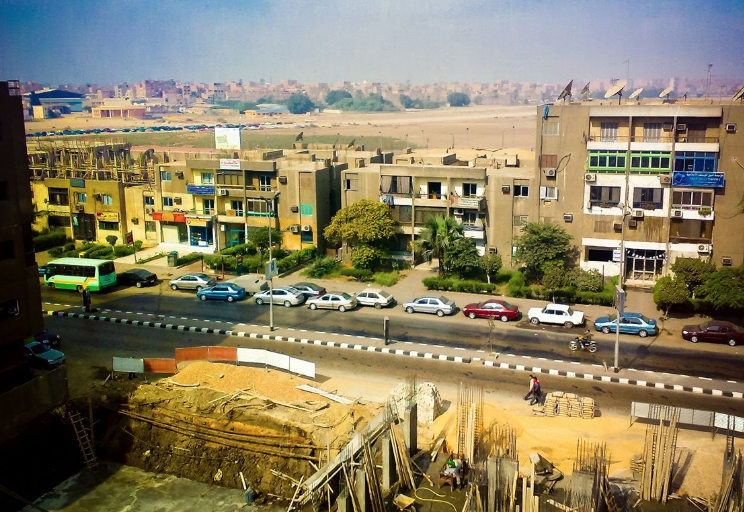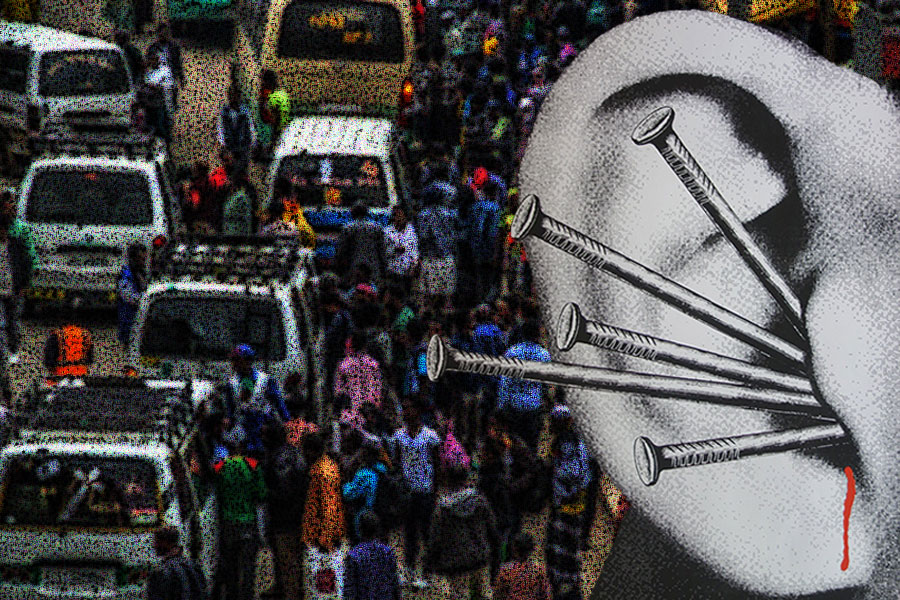
Viewpoints | Mar 23,2019
Dec 29 , 2018
By Hintsa Andebrhan
It would be an understatement to say that Ethiopia’s economic and political situation has gotten worse over the years. But the latter has been far worse than the former. There is tension between the federal and regional governments. The rhetoric coming from most sides of the political rhetoric is ugly and sickening.
Most worryingly, the government is losing its grip over the legitimate exercise of force in the country, and innocent civilians are getting attacked in broad daylight owing to their ethnic persuasion.
Such sociopolitical tensions can persuade us into believing that the macroeconomic problems facing the nation should be put on the back burner. Double-digit inflation, low export performance, debt stress and the absence of a strong private sector do not seem that urgent given that citizens are beginning to feel less safe in their own country.
Indeed, the seriousness of the political malice this nation is facing makes it very hard for the incumbent to spend time on matters that are not directly related to averting the worst case scenario the combination of an uninformed public, a non-assertive security apparatus and egotistical political leaders can bring.
But there is no escaping the fact that all political problems, either partly or wholly, have their roots in economic shortcomings. It can be said that to all the political problems that face the country citizens should contribute their part to orient the country along a more stable path. The economic problems though can only be addressed by a government willing to learn from its past and reform accordingly.
This is because it is the EPRDF’s policies that have led to this sorry macroeconomic state. There may be a high gross domestic product growth rate, but there is enough worrying undulation in the macroeconomic fundamentals to show that the economy is unhealthy and requires stimulation in the form of progressive economic reforms.
The fundamental problems have been poor fiscal and monetary policies. High government spending and deficit financing over the years ensured that inflation picked up, the real rate of the Birr depreciated and investors lost confidence in the currency. This fueled the appetite of the black market, which then dilapidated the government’s foreign currency reserves.
Lax checks and balances between the different bodies of governments also made the possible positive impacts that could have been gained from government spending impossible to be fully realised. It left us with the waste of government resources, delays of projects and poor products.
This all severely impacted the private sector. It was crowded out by public enterprises in credit and foreign currency allocation, but that these ventures were never as profitable as they were promised meant businesses will continue to subsist in an environment that is inimical.
Fortunately, there are already some initiatives underway to improve the business environment with the view that a robust private sector will go a long way to helping the nation generate foreign currency, create employment opportunities and improve tax revenue.
This should be commended full-heartedly and the government edged on to push forward with reforms indispensable to a healthy economy. It should be able to liberalise industries closed to the private sector, take measures to improve the professionalism of the bureaucracy and invest to ensure linkages between industries.
The government at this time should also improve its regulatory capacity. It should be able to come up with new policies that are able to dissuade efforts to move capital away from the country while incentivising its entry into the country.
This could be by opening up the capital account, which will boost investor confidence about the state of the economy, and by printing new 50 Br and 100 Br notes to nip illegal stashing of wealth in the bud.
Prime Minister Abiy Ahmed (PhD) and his administration may be tasked with the mountainous task of keeping this country stable and peaceful, but it should not be forgotten that the economic paralysis is also worrying. It is not just a case of having to lubricate the economy for better performance but correcting the unhealthy distribution of wealth.
PUBLISHED ON
Dec 29,2018 [ VOL
19 , NO
974]


Viewpoints | Mar 23,2019

Editorial | Oct 28,2023

Verbatim | Jan 07,2023

Editorial | Aug 10,2024

Editorial | Nov 30,2024

Viewpoints | Jul 18,2021

My Opinion | Jun 20,2020

Fortune News | Jun 08,2019

Commentaries | Aug 06,2022

Featured | Jan 19,2024

Photo Gallery | 175760 Views | May 06,2019

Photo Gallery | 165978 Views | Apr 26,2019

Photo Gallery | 156375 Views | Oct 06,2021

My Opinion | 136844 Views | Aug 14,2021

Dec 22 , 2024 . By TIZITA SHEWAFERAW
Charged with transforming colossal state-owned enterprises into modern and competitiv...

Aug 18 , 2024 . By AKSAH ITALO
Although predictable Yonas Zerihun's job in the ride-hailing service is not immune to...

Jul 28 , 2024 . By TIZITA SHEWAFERAW
Unhabitual, perhaps too many, Samuel Gebreyohannes, 38, used to occasionally enjoy a couple of beers at breakfast. However, he recently swit...

Jul 13 , 2024 . By AKSAH ITALO
Investors who rely on tractors, trucks, and field vehicles for commuting, transporting commodities, and f...

Oct 18 , 2025
The political establishment, notably the ruling party and its top brass, has become p...

Oct 11 , 2025
Ladislas Farago, a roving Associated Press (AP) correspondent, arrived in Ethiopia in...

Oct 4 , 2025
Eyob Tekalegn (PhD) had been in the Governor's chair for only weeks when, on Septembe...

Sep 27 , 2025
Four years into an experiment with “shock therapy” in education, the national moo...

Oct 18 , 2025 . By NAHOM AYELE
In a sweeping reform that upends nearly a decade of uniform health insurance contribu...

A bill that could transform the nutritional state sits in a limbo, even as the countr...

Oct 18 , 2025 . By SURAFEL MULUGETA
A long-planned directive to curb carbon emissions from fossil-fuel-powered vehicles h...

Oct 18 , 2025 . By BEZAWIT HULUAGER
Transaction advisors working with companies that hold over a quarter of a billion Bir...